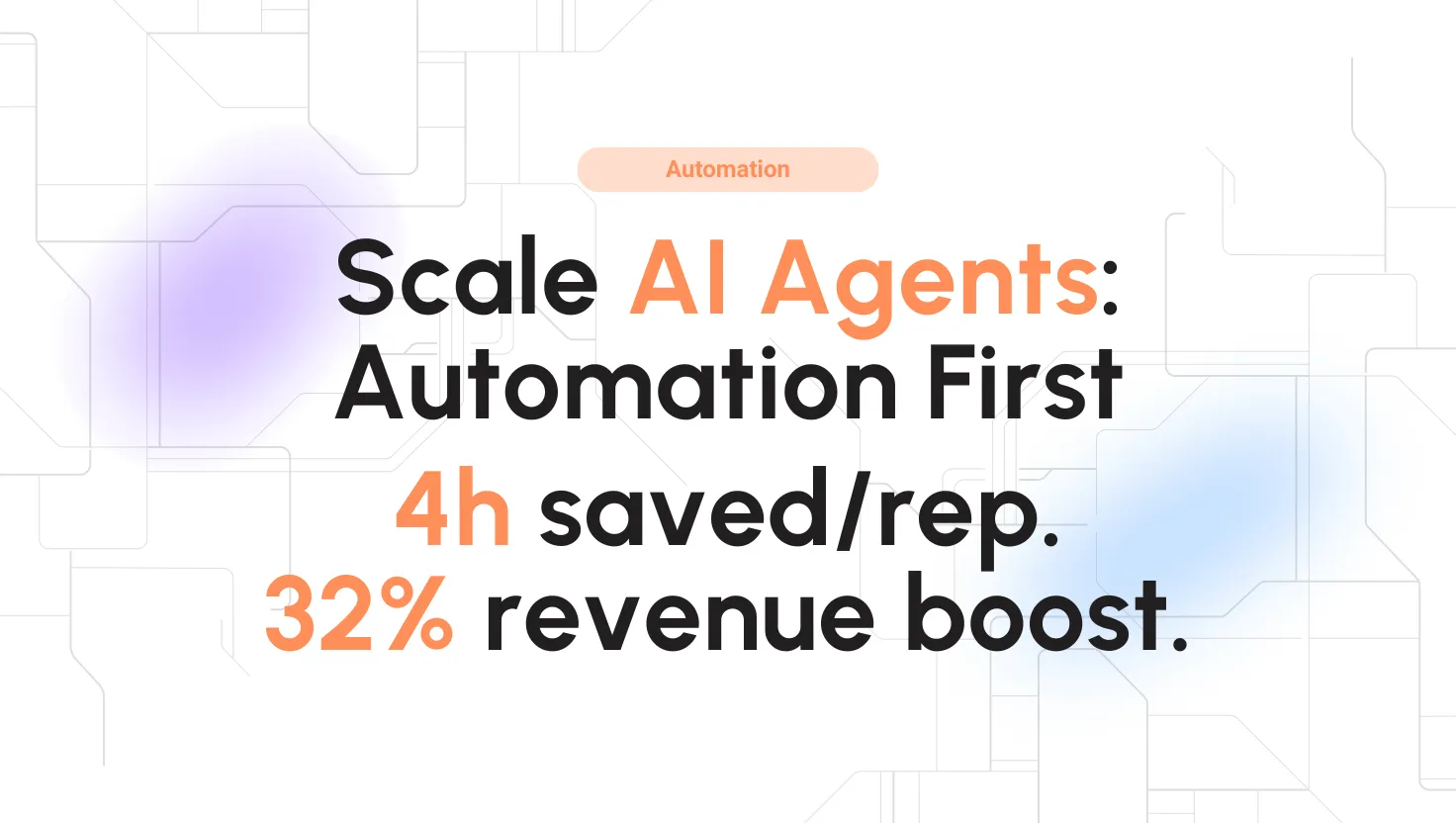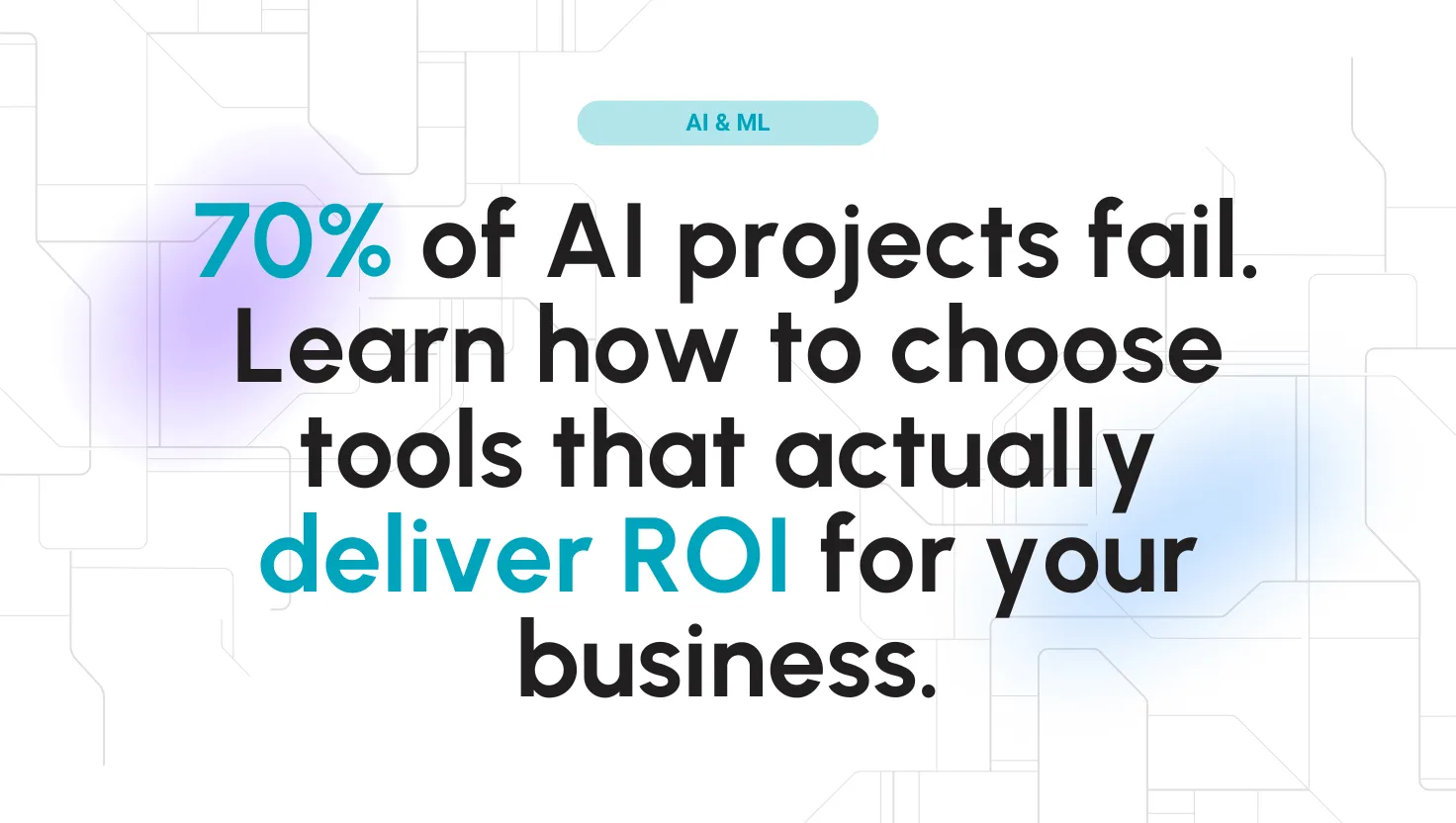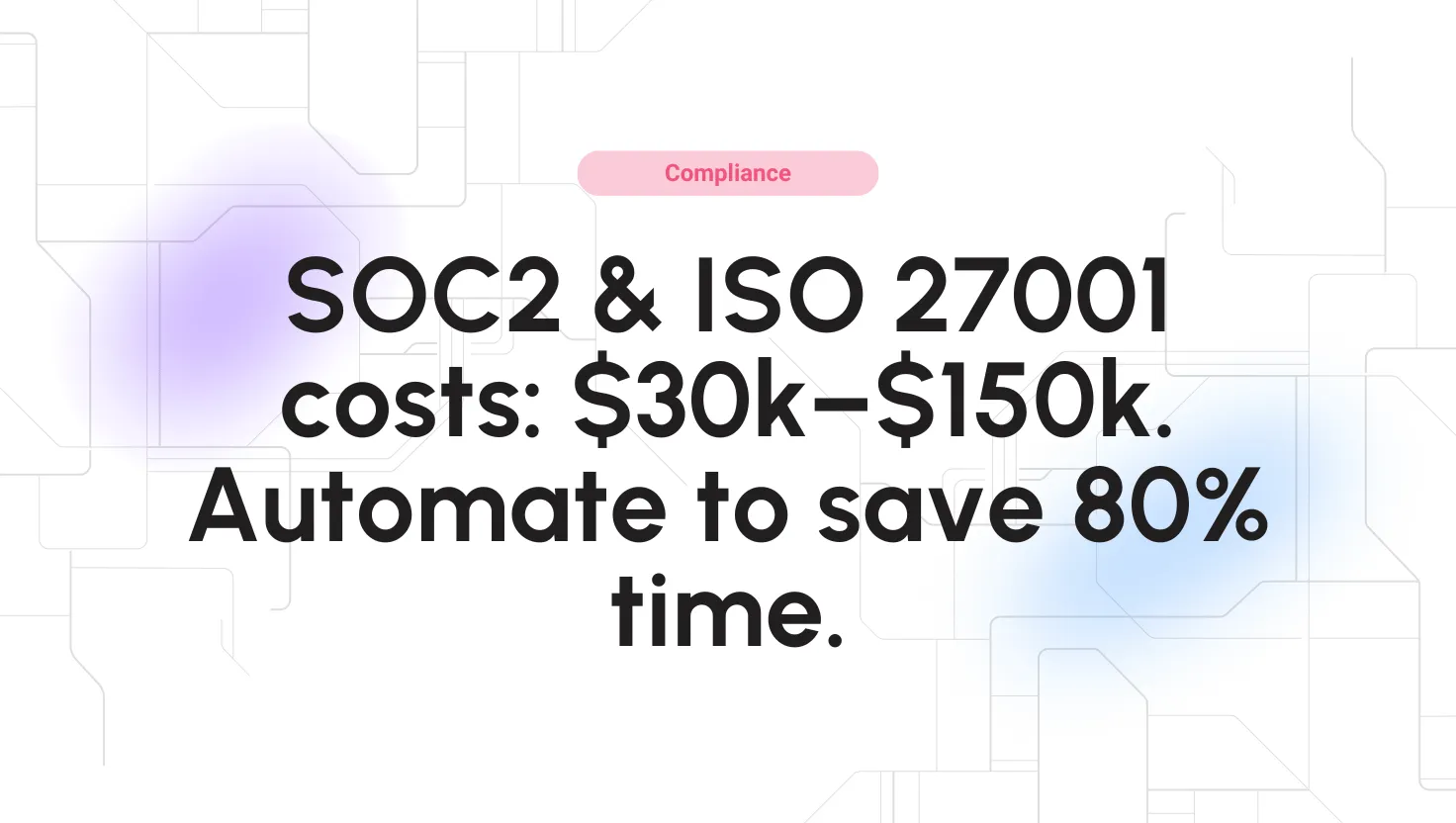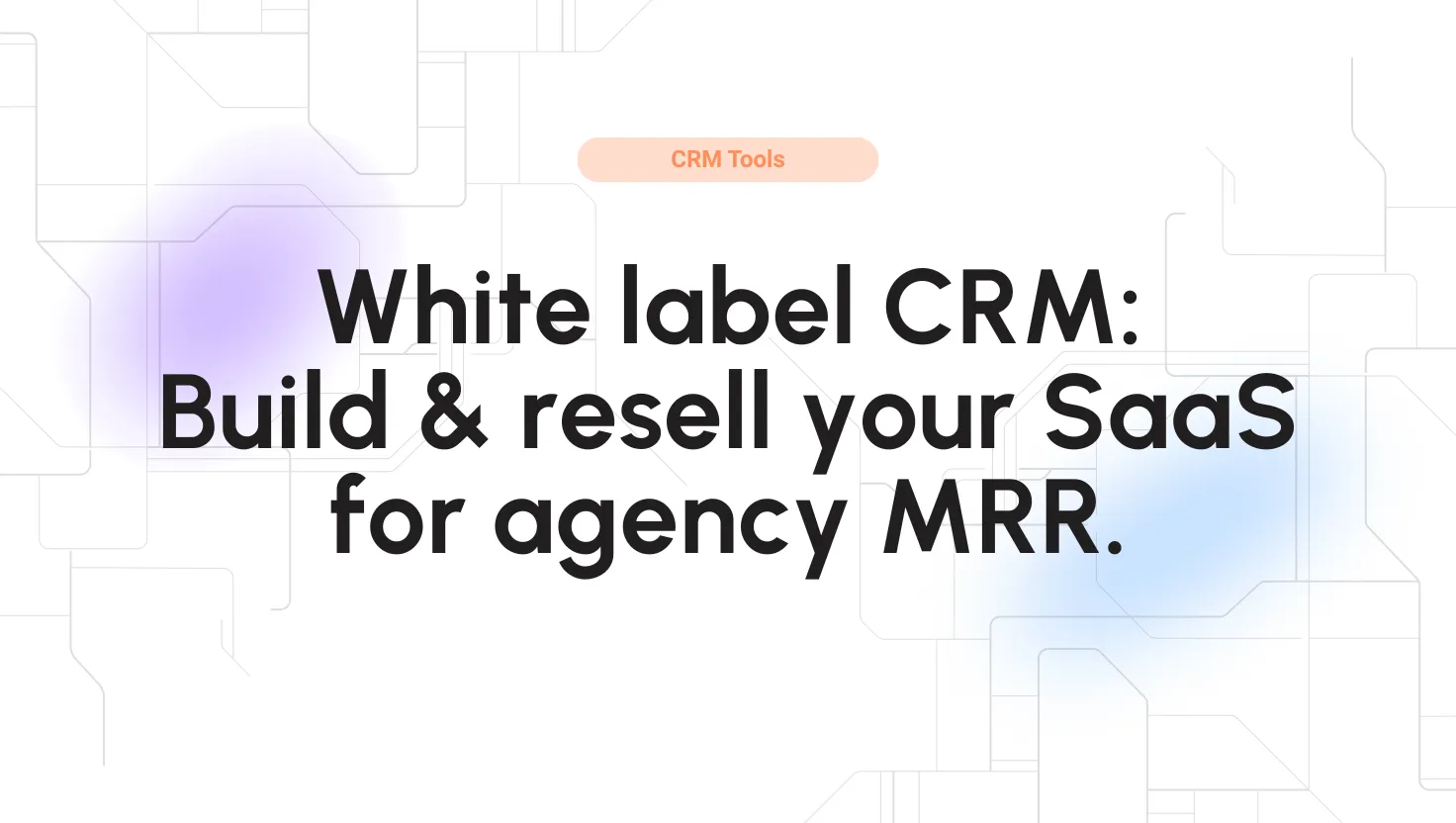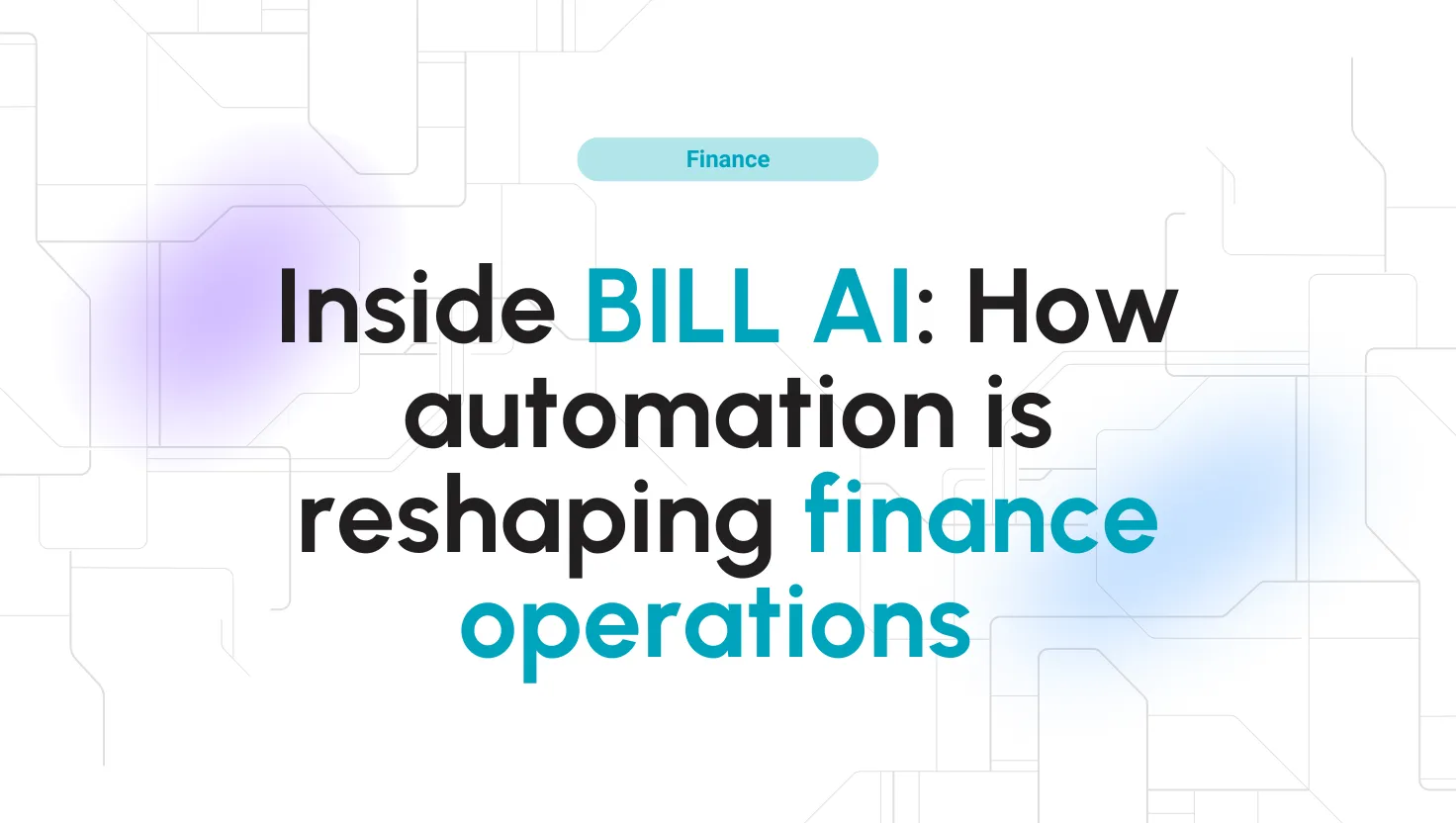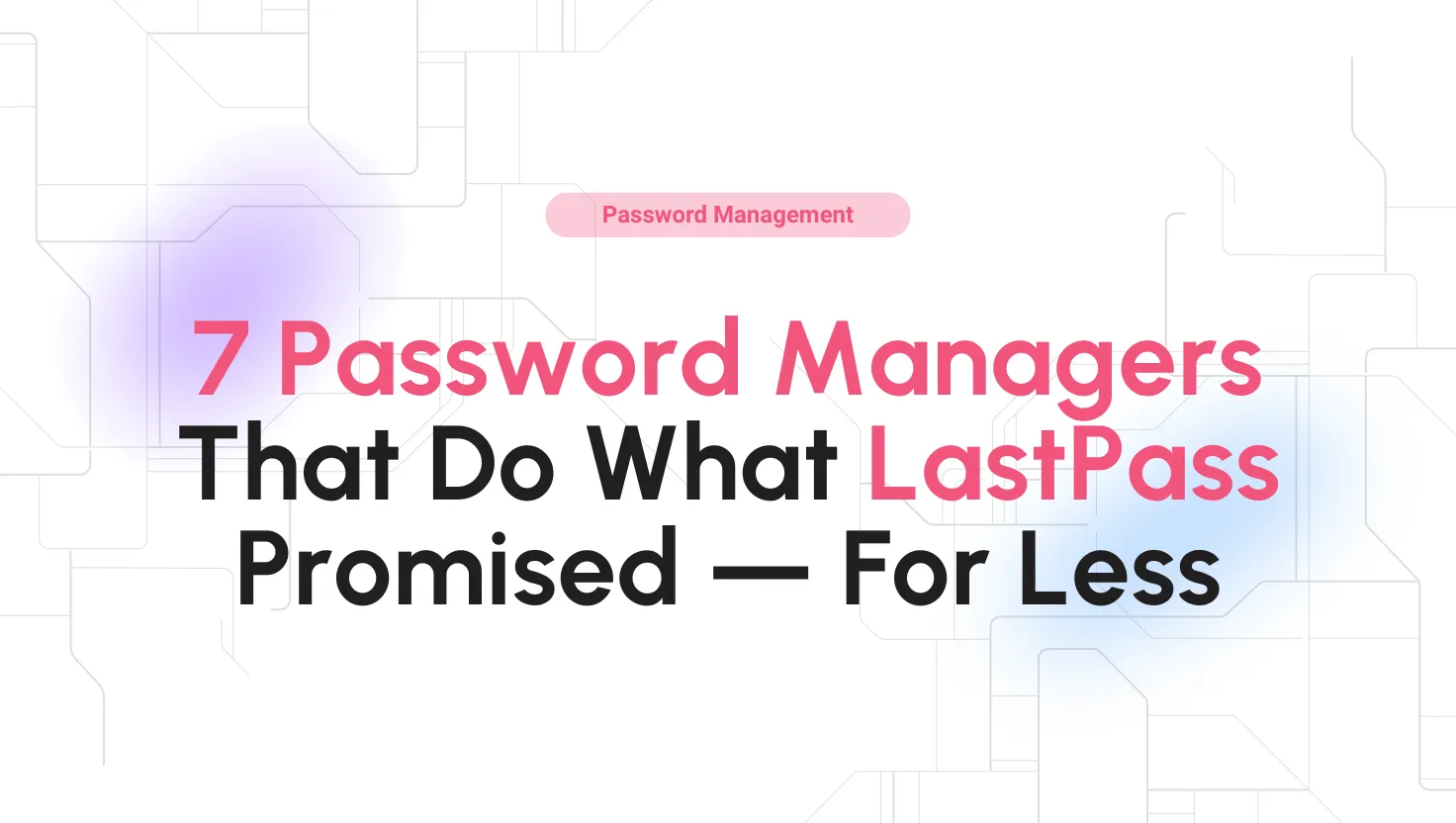
Google Cloud Reviews for 2026
Save 40% on your SaaS stack with expert guidance
Free Consultation
What is Google Cloud?
Google Cloud is a comprehensive suite of cloud computing services offered by Google, designed to empower businesses to drive innovation and growth. This platform integrates seamlessly with Google’s well-established infrastructure, enabling a vast array of services ranging from computing and storage to networking and big data.
With its robust set of tools, Google Cloud facilitates the deployment, management, and scaling of applications on the same infrastructure used by Google for its own products. Key features include powerful data analytics capabilities, machine learning tools, and live migration of virtual machines. Google Cloud’s extensive network ensures that these resources are available globally, allowing organizations to operate with agility and scale as needed.
Google Cloud is particularly beneficial for businesses looking to leverage artificial intelligence and big data analytics to enhance their offerings and streamline operations. It provides a secure and highly scalable environment for hosting mobile and web applications, carrying out data analysis, processing, and storage.
Companies in the healthcare, retail, financial services, and media industries, among others, utilize Google Cloud to innovate and optimize their workflows, demonstrating the platform’s versatility and wide-reaching applicability.
Awards
Found in these Categories
Best For
- StartUps
- Freelancers
- Small Business
- Medium Business
- Large Enterprise
Google Cloud Pricing
Free Tier
Pay-As-You-Go
Looking to Save Time & Money
Audit, consolidate, and save—powered by our internal buying team. Let our experts analyze your current software stack and identify opportunities for cost savings and efficiency improvements.
- Stack Audit
- Cost Reduction
- Expert Team
Google Cloud Features
- Access Controls/Permissions
- Activity Dashboard
- Alerts/Notifications
- API
- Application Management
- Capacity Analytics
- Cost Management
- Data Import/Export
- Data Storage Management
- Data Visualization
- Event Logs
- Monitoring
- Multi-Cloud Management
- Performance Analysis
- Real-Time Monitoring
- Reporting/Analytics
- Search/Filter
- Server Monitoring
- Service Level Agreement (SLA) Management
- SSL Security
- User Management
- Virtual Machine Monitoring
- Workflow Management
- Access Management
- Backup and Recovery
- Business Process Automation
- Calendar Management
- Chatbot
- Cloud Computing
- Collaboration Tools
- Compliance Management
- Compliance Tracking
- Configurable Workflow
- Configuration Management
- Connectivity Management
- Customer Database
- Data Blending
- Data Capture and Transfer
- Data Cleansing
- Data Connectors
- Data Dictionary Management
- Data Discovery
- Data Extraction
- Data Management
- Data Migration
- Data Replication
- Data Security
- Data Synchronization
- Data Virtualization
- Data Warehousing
- Database Conversion
- Database Support
- Device Management
- Diagnostic Tools
- Document Storage
- Email Management
- Endpoint Protection
- ETL - Extract Transfer Load
- File Transfer
- For Retail
- For Sales Teams/Organizations
- Graphical User Interface
- High Volume Processing
- HIPAA Compliant
- In-Database Processing
- Integrated Development Environment
- Load Balancing
- Machine Learning
- Metadata Management
- ML Algorithm Library
- Model Training
- Multi-Language
- Multiple Data Sources
- Multiple Programming Languages Supported
- Natural Language Processing
- Performance Metrics
- Predictive Analytics
- Prioritization
- Process/Workflow Automation
- Relational Database Management
- Release Management
- Remote Access/Control
- Reporting & Statistics
- Requirements Management
- Role-Based Permissions
- Scheduling
- Secure Data Storage
- Speech Recognition
- Task Scheduling
- Templates
- Testing/QA Management
- Threat Response
- User Provisioning
- Virtual Machine Encryption
- Virtual Machine Migration
- Virtual Personal Assistant (VPA)
- Virtual Server
- Workflow Configuration
User Sentiment - Google Cloud Reviews
-
Scalability
Users often praise Google Cloud for its excellent scalability options that allow businesses of all sizes to expand their resources as needed without significant downtime or complications.
-
Innovations and Features
Google Cloud is frequently lauded for its continuous innovation and introduction of cutting-edge features, especially in areas like artificial intelligence, machine learning, and data analytics.
-
Integration Capabilities
Many reviews highlight the ease of integrating Google Cloud with various other tools and services, which is beneficial for companies that use a mix of cloud services.
-
Reliability and Uptime
High reliability and uptime scores are common in reviews, with users noting that Google Cloud provides stable and dependable service.
-
Security
The platform’s security features are often noted as robust and effective, providing users with peace of mind regarding their data’s safety.
-
Cost
While Google Cloud is competitive, some users find its pricing model to be confusing and occasionally more expensive than similar services, especially when considering outbound data transfer costs.
-
User Interface
Newer users sometimes report that the interface can be overwhelming or less intuitive than those of other major cloud providers, which can steepen the learning curve.
-
Customer Support
There are mixed reviews regarding the timeliness and effectiveness of customer support. Some users feel that support could be more accessible and responsive.
-
Documentation
Although extensive, the documentation can sometimes be too technical or not sufficiently detailed for beginners to follow easily.
-
Feature Complexity
Some of the more advanced features can be complex to set up and require significant technical expertise, which can be a barrier for smaller teams or less tech-savvy users.
Leave a Review
Google Cloud Company Details
Own this Software?
Google Cloud vs. Similar Products
Select up to 3 Software, to enable Comparison
Compare Selected SoftwareEditorial Review: Google Cloud Deep Dive
Table of Contents
At the core of remote connectivity and the global economy are cloud technology providers such as Google Cloud Platform (GCP).
GCP is not the top player in the cloud ecosystem. Still, it is competent enough to grab the attention of companies looking for an affordable infrastructure as a Service (IaaS) provider. It is ranked third behind Amazon Web Services (AWS) and Microsoft Azure. However, Google’s revenue was 33 billion US dollars in 2023, a 25% increase compared to last year. That’s not all; it has grown constantly since 2017 ($4 billion in revenue), establishing itself as a core player in the cloud infrastructure market.
These numbers hint at one thing: GCP is a viable cloud partner that offers top-notch IaaS solutions, ideal for a variety of use cases. It is also a great pick for SMB (Server Message Block) network-powered enterprise IT solutions.
In this Google Cloud Platform review, we learn what GCP offers by reviewing its key features, pricing, user experience, interface, support, and more.
What is Google Cloud Platform (GCP)? – Overview
Google Cloud Platform is a cloud service provider and Infrastructure as a Service provider with a new focus on AI and ML integration. It is mainly aimed at medium to larger-scale businesses, including enterprises that want to use the most innovative tools and insights to beat the competition.
GCP offers a variety of cloud services, including computing, hosting, big data, networking, data analytics, storage & database, and machine learning. If you go to the Google Cloud solutions page, you’ll see the listed services. What’s more, it offers customized industry solutions that match specific challenges related to that industry. These solutions are fine-tuned to improve efficiency while reducing cost.
For example, GCP provides a ‘Google Cloud for Games’ industry solution. It offers an ecosystem for live game services, giving game development companies or developers the platform to create, distribute, and scale their games to a worldwide audience. It offers access to Compute Engine to serve the game experience, Google Kubernetes Engine to scale, and Cloud Armor to shield the game experience. Furthermore, it gives access to databases.
Similarly, it offers solutions for major industries, including Manufacturing, Energy, Healthcare, Automotive, and retail.
Additionally, GCP also offers jump-start solutions such as:
- Deploy a dynamic website
- Deploy an e-commerce web app
- Deploy an AI/ML image-processing pipeline
- Deploy an internal knowledge base
And so on.
As for the infrastructure side, Google Cloud Platform has a global presence with cloud locations in 40 regions, 121 zones, 187 network edge locations, and 200+ countries and territories. They are actively expanding to new areas, including Greece, Norway, and Sweden. However, only some of its products are available across the locations, and you can find the list on its locations page. As a business, you should aim to opt for a region that meets your requirements. Doing so improves latency, reduces prices, and decreases carbon footprint.
GCP is well-poised to increase its market share. It is also easy to use, with access to a global network and a wide selection of network infrastructure assets.
Getting Started With Google Cloud Platform: Setup and Configuration
GCP enables businesses to hop on to their services as smoothly as possible. It starts with the sign-up process, where you can use your Gmail or business account. You can start fresh or add Google Cloud Platform services to your existing business Google account.
After registering and logging in, you’ll instantly see its $300 free credit offer. It is for every new user but requires a credit/debit card to activate. You can use the free credits to try any of the available Google Cloud products with no fear of auto charge (once the trial ends). However, once you activate it, you must use it within three months from the date of activation.
You can opt to use it or just skip it for later use.
Coming to its interface is neat and clean, with a high focus on the graphical user interface (GUI) (a huge change compared to the initial GCP, where everything needs to be done through a command line interface). Almost every product or service has a dedicated interface to help you through the different tasks, be it spinning up a server or setting up the database.
The dashboard is clean and displays your latest project information. Four buttons let you create a VM, run BigQuery, create a GKE cluster, and create a storage bucket, followed by quick access to GCP products.
The “My First Project” is automatically generated during sign-up. It is a great place to start experimenting and learning about GCP.
As for configuration, each instance is highly configurable (both Windows and Linux servers). Moreover, Google Cloud Platform also offers pre-configured servers that are accessible through the marketplace (for example, Windows Server 2022 or LAMP stack on Ubuntu).
Currently, GCP has a soft limit of 30 projects for new organizations with new billing accounts, which is raised gradually to 100 and then unlimited. However, if your initial requirement is high, you can always contact GCP support to increase the limit by a specific amount.
Overall, setting up and configuring services on GCP is easy for beginners. You can get help from GCP’s excellent documentation and startup guides, such as a setup checklist.
Key Features – Detailed
Google Cloud Platform is a complete cloud platform. This means it offers many services, including hosting, storage, SMB infrastructure, AI, Security, Analytics, and Databases. To truly understand GCP, let’s list its key features below.
Note: Most of its features require you to enable billing before you can use them.
SMB Infrastructure and Google Workspace
Small and medium-scale businesses can take advantage of Google Cloud Platform SMB infrastructure. Enterprises can also use Google-focused cloud-based solutions and Workspace to create and run an enterprise IT solution.
Google Workspace lets teams collaborate remotely. It offers custom email solutions with key collaboration tools such as Meet, Calendar, Gmail, Docs, Drive, etc. Google is also proactive in AI integration and offers Gemini AI for paid users, which improves productivity, collaboration, and organizational data control. If you’re not sure how Workspace can impact your business, try out its 14-day trial.
Cloud Web and Application Hosting
Google’s excellent cloud infrastructure also offers exceptional hosting capabilities, which you can use to deploy websites, dynamic web apps, or eCommerce solutions. GCP is so good that Kinsta (a popular WordPress hosting provider) and Cloudways use their servers to provide hosting solutions to their users.
Businesses can use preconfigured solutions to deploy their site or service. For example, they offer solution types such as:
- Setup and deploying WordPress as a single-node
- Click to deploy preconfigured WordPress, Lamp Stack, eCommerce, Dynamic Website, or three-tier web applications on Compute Engine.
- Static via Firebase Hosting and dynamic via Firebase, Cloud run, and Compute engine.
By using GCP as your hosting provider, you get multiple benefits, including:
- A committed 99.99% uptime for Compute Engine and Storage.
- Easy to set up and deploy
- Top-notch security with excellent data protection
- Support for live virtual machine migration, improving uptime and availability in instances such as maintenance, network or grid failure, hardware failure, etc.
- Get a free uptime monitor to understand the impact of downtimes better and know how to fix it.
- Access to global infrastructure with servers across different regions.
- Excellent throughput ensuring performance during peak traffic (Google Cloud Platform throughput is 3x that of WS and Azure according to Cockroachlabs)
- Vast network with continuous effort to expand infrastructure
- Great support with paid options and community support.
Businesses can also host applications on Google Cloud. For example, you can use Cloud Run to host HTTP services and backend apps, whereas Compute Engine is an ideal choice for on-premise and monolithic workloads. Organizations can opt to use Cloud Functions for event-driven and data-processing apps.
Google Cloud Platform Performance and Uptime
GCP is a performant cloud provider that matches the likes of AWS and Azure. With high throughput and access to a robust infrastructure, businesses can enjoy excellent performance and uptime. However, high performance comes at a cost, offered via the Premium Network Service tier. For companies with limited budgets, Google provides a standard tier, which slightly adjusts performance.
GCP uses managed load balancing services to manage the traffic to ensure high performance during peak hours or surges. It automatically distributes the traffic to different instances, ensuring optimal performance at all costs. Additionally, GCP utilizes high-performance storage solutions such as Filestore, Cloud Storage, and Persistent Disk to provide high throughput and performance.
In addition to unparalleled performance, GCP guarantees 99.99% uptime for its storage and computing services (as mentioned in its SLA). Organizations can monitor uptime and performance through Service Health and monitoring tools such as Catchpoint, which run tests for network performance, enabling them to detect and fix issues.
Storage
Storage is one of the core Google Cloud Platform solutions. It powers the entire Google Cloud ecosystem, including its Workspace and Gmail solutions. For businesses that need storage, Google Cloud offers different types of storage, including Google Cloud Storage (GCS), which provides object-based storage for a variety of use cases, including automatic storage class transitions for storing data for ML/AI projects and analytics to continental-scale and SLA-backed replication.
Additionally, GCP also offers:- The persistent disk is ideal for Compute Engine and Kubernetes Engine projects.
- Filestore for applications that rely on the file system interface.
- Cloud SQL and Cloud Spanner managed services for managing relational databases such as PostgreSQL, SQL Server, and MySQL.
GCP offers free 5 GB for US regional storage.
As data security is paramount, GCP utilizes encryption to secure all transmitted data. It also uses detailed audit logs and access management(IAM) for proper data access. In addition, GCP ensures complete compliance by following industry standards and regulations in different sectors, including healthcare, finance, etc.
AI and ML
Google offers AI/ML-focused solutions for businesses to take advantage of the new AI revolution, benefitting even the non-AI-focused businesses by offering Gemini, a highly capable multimodal that integrates with different GCP solutions, including Workspace.
GCP offers generative AI solutions such as Vertex AI studio that enables AI experts to prototype and test Gen AI models. Additionally, they also provide Vertex AI Agent Builder, a no-code experience for managers. Apart from these, it offers dedicated Vertex AI platforms with access to 130 models to choose from.
Businesses can use its speech, text, and language API solutions for different use cases, including real-time transcription, training ML models, improving customer interactions, etc.
For businesses needing AI infrastructure, Google offers TPUs, GPUs, and CPUs from Nvidia, AMD, and Intel that let them run data-intensive models. Through its AI Readiness Program, Google also provides consulting services.
Overall, Google Cloud offers extensive AI/ML solutions and products that can match most business needs, be it solution-based or hardware-based.
Analytics and Reporting
Google’s analytics tools and services are capable of handling large-scale data and providing valuable insights, making decision-making easier.
GCP offers advanced analytics capable of handling BigQuery and BigQuery ML. With Dataflow, you can create a real-time data processing service and then use Google Data Studio to visualize data with charts and interactive dashboards.
For bigger organizations, Google offers Analytics Hub, which allows secure and efficient exchange among own organization or third-party network. It helps data-focused businesses to monetize their data. Furthermore, Analytics Hub makes it easy to share real-time data among subscribers with a permission-based catalog.
Like other GCP products, Analytics also offers stringent data security with a focus on compliance and regulations.
User Experience
Google Cloud Platform is a user-friendly cloud service provider. Like AWS and Azure, the challenge is to provide easy access to all its cloud solutions and products without confusing the user. And it partially succeeds, depending on the service type you’re looking for.
The onboarding is neat and smooth (discussed in the Setup and Configuration section above). However, if you’re moving from other cloud service providers such as AWS or Azure, you’ll notice that similar Google services have fancy names. For instance, Google uses “compute engines” for virtual machines or “Bigtable” for database engines.
Interface Usability
The Google Cloud Interface differs widely depending on the service you’re seeking. However, there are key things that I noticed:
- Consistent design across all the products and services, enabling easy discovery for users.
- Access to important features directly from the console
- Quick access allows you to move from one service to another with ease.
- Visually-focused UI that uses charts and graphs to convey the message as much as possible
- Quickstart options and easy access to tutorials if needed.
It is a clean interface with access to important functionality and options on the left menu (common for all the services/products). To enable the service, you get a nifty “+Enable APIS and Services” at the top (below the search bar) and access to filters at the bottom.
Next, it showcases important data across various periods through graphs and charts. For APIs and Services, it shows Traffic, Errors, and Median Latency graphs.
Most GCP services follow the same interface pattern with a focus on accessibility and usability.
Support and Resources
GCP interface usability is directly connected with the available resources, including pre-defined libraries, quick-start guides, and step-by-step tutorials.
GCP knows that and offers resource links in all of its services/products for easy access. Its documentation is great and evolving rapidly so that it can enable even non-tech people like managers to use GCP effectively.
Google Cloud offers dedicated learning resources such as Training, which provides access to structured learning paths with courses and tutorials. For more traditional learning, they have dedicated documentation accessible on the Docs page.
Other Google Cloud Platform Features Worth Mentioning
-
Security
Like AWS and Azure, Google also takes security seriously. They encrypt all data with industry-standard 256-bit encryption and use TLS to secure data during transfer. Even Google can only learn about your data with zero-knowledge encryption. Additionally, it offers SSO service integration and two-factor authentication for login-based security.
You can set your private encryption keys during server or object-based database creation, adding another layer of protection. They also have hardware fail-safes to counter server stack malfunctions.
-
Cloud Monitoring and Reporting
Google Cloud Platform offers excellent cloud monitoring features, enabling you to keep track of your application’s overall health, performance, and availability.
You can monitor the cloud in multiple ways, including a Dashboard, Managed Service for Prometheus, and Ops Agent for VMs. With the right tools, you can also monitor Kubernetes and virtual machine-managed metrics.
-
Support
All GCP customers can take advantage of its basic support, which consists of cloud billing support, community support, documentation, and active assist recommendations. This requires actively investing time to resolve issues with your cloud setup.
Like AWS and Azure, GCP offers paid tech support divided into three tiers:
- Standard support: The standard support starts at $29/month + 3% of the monthly charges. It is the lowest-tier support, which is ideal for businesses starting their cloud journey. (4 hours initial response times)
- Enchanted support: The enhanced support offers faster response times, which is ideal for workloads in production. It starts at $500/month + 3$ of the monthly charges. (1 hour initial response times)
- Premium support: If you’re an enterprise working with a critical workload, then premium support is an ideal pick. It offers the fastest response time with a dedicated Technical Account Manager to handle emergencies. It starts at $12.5/month + 4% of the monthly charges. (15 minutes initial response times)
Apart from Standard support, enhanced and premium support have 24/7 response time.
Overall, GCP doesn’t do anything extra compared to its competitors and follows a more traditional cloud service support. If you want to learn more, check out the GCP support page.
-
Marketplace
Google Cloud Marketplace is a centralized place where you can access all Google Cloud products plus third-party integration solutions such as the Places API, Geocoding API, Elastic Cloud, Apache Kaftka, MongoDB, etc.
The large catalog comprises applications from different categories, including analytics, databases, machine learning, generative AI, etc. It also offers categorization by type (SaaS & APIs, Vertex AI, Data, etc.) and Price (free trial, free, paid, Bring Your Own License).
-
APIs
Google Cloud Platform APIs provide teams with access to top-notch machine learning, data processing, and app development capabilities to improve their projects.
They offer a plethora of APIs, including Compute APIs, Storage and Database APIs, Networking APIs, AI and machine Learning APIs, and Operations APIs. These APIs support RESTful interfaces and can be implemented using different programming languages.
Use Cases
In this section, we go through three use cases to understand the scope of the Google Cloud Platform.
Remote Enterprise IT solutions
One of the most obvious GCP use cases is the cloud-based enterprise-ready remote workplace. It offers all the features needed to securely build up and manage the enterprise IT solution with the ability to scale it when required. Its virtual-machine-based approach ensures that every machine is safe from attacks with both software and hardware-based fail-safes in place.
For productivity and collaboration, teams can use Workspace (previously known as Google Suite), which allows them to use Gemini AI.
Gen AI use cases
Gen AI is capturing the world’s attention as it focuses on improving an organization’s efficiency by automating boring tasks.
GCP offers all the tools to facilitate Gen AI with the help of Vertex AI platforms, Gemini multi-model, AI-powered Google Workspace, and Distributed Cloud. Businesses can use these technologies for various use cases, including serving customer support.
Gaming
Google Cloud Platform provides gaming-focused services, which are ideal for developers looking to kickstart their next-gen gaming development. It offers all the tools needed to develop, deploy, and scale multi-player gaming experience.
Google Cloud Platform Pros and Cons
Before opting for GCP, you must know about its pros and cons.
Google Cloud Platform is a top-notch cloud service provider. In recent years, it has shown tremendous growth in terms of revenue and users. On the infrastructure side, GCP is not shy about adding new data centers and servers to improve its service worldwide. It supports both Windows and Linux and offers a wide variety of server location choices.
Businesses can use GCP according to their needs, whether they’re hosting a new website or setting up and managing a complete remote IT ecosystem with a focus on collaboration and productivity.
GCP is also a great choice for a multi-model cloud, where organizations can use GCP infrastructure to host their applications. This improves reliability and protects businesses against vendor lock-in.
However, the best part is GCP’s active interest in the AI space, offering a plethora of AI-focused hardware and solutions. I like its Vertex AI studio, which allows managers to create AI agents without writing a single line of code. Developers offer APIs for their solutions as well as third-party providers, giving you enough tools to create the perfect ecosystem for your organization.
With an enterprise-grade approach, GCP is also secure and compliant. They offer teams to set up IAM while taking care of industry and compliance standards themselves. The data is stored in encrypted format, and data transfers are done using TLS, offering complete end-to-end data protection.
However, there are a few cons as well. Firstly, GCP is slightly more expensive than AWS. It also has a steep learning curve for new users and can take time to setup and customize. The billing aspect can also become complex for businesses to manage, making overspending a common theme among businesses.
Overall, I like the Google Cloud Platform. It is a dominant player in the cloud marketplace with a high focus on infrastructure growth and AI integration.
Google Cloud Platform – General overview on costs
Google Cloud Platform pricing is hard to summarize, considering they offer a variety of cloud-based services and your choice of cloud region and add-on services that you might need to run your application. However, there is one common theme, i.e., pay-as-you-go. So, you’re in complete control of how much GCP costs you.
If you’re unsure, you can take advantage of a $300 credit to try out any of the Google Cloud solutions. To activate it, you need to enter your credit card details (don’t worry, automatic billing is turned off by default).
Final Verdict
Google Cloud Platform is a top-tier cloud service provider. It is a great pick even when it stacks third against the two big players, Microsoft Azure and Amazon AWS.
GCP provides a wide variety of services, including computing, big data, networking, storage, machine learning, and hosting. Each of these services enables businesses to take advantage of the cloud ecosystem, especially if they have a global presence and need remote establishment using their vast infrastructure.
I liked their industry-focused solution, which enables anyone to kickstart their cloud journey. Most services also have a user-friendly interface with access to important documentation and tips, offering excellent usability.
Overall, GCP is an enterprise-ready cloud provider with excellent security and usability. They’re keen to provide industry-leading tools and match the trends such as Gen AI. With a 99.99% uptime guarantee (Compute Engine and Storage), GCP can power critical services.
For businesses with multi-cloud requirements, GCP is a great fit. It offers access to a dedicated marketplace and APIs for easy integration and monitoring. I recommend the Google Cloud Platform to any business. If you’re unsure, always take advantage of its $300 free credit.
Google Cloud Frequently Asked Questions (FAQs)
Google Cloud Platform (GCP) is a comprehensive suite of cloud services offered by Google that enables businesses to build and run applications and websites, store data, and analyze data on Google’s scalable infrastructure. It includes a range of services from computing, data storage, data analytics, and machine learning, all of which utilize the same infrastructure that powers Google’s own products like Google Search and YouTube.
No, Google Cloud Platform and Amazon Web Services (AWS) are different, though they are both leading providers of cloud computing services. They offer similar services such as computing power, storage, and databases but differ in pricing models, service specifics, and additional features tailored to different business needs.
For beginners, Google Cloud Platform provides an accessible entry point to cloud computing with extensive documentation, a user-friendly interface, and a variety of tools that simplify the deployment and management of applications. Google offers guided tutorials and resources to help newcomers navigate their first projects on the cloud.
To use Google Cloud, you can start by setting up a free account, which provides access to all Google Cloud services. From there, you can create projects, manage resources, and deploy applications using the Cloud Console, Command-line interface, or client libraries.
Google Cloud Platform is highly regarded for its advanced security features, innovative data solutions like BigQuery for analytics, and robust machine learning tools. It’s recognized for high availability and reliability across its global network of data centers, making it a strong option for businesses of all sizes.
Yes, individuals can use Google Cloud either for personal projects or to develop professional applications. The platform offers scalable services that can be tailored to projects of any size, from simple websites to complex applications.
While Google Cloud Platform (GCP) is known for its user-friendly interface and extensive resources to aid learning, it also presents a steep learning curve for some users. GCP offers various interactive tools such as Cloud Shell and comprehensive documentation, which facilitate a hands-on approach to learning cloud services efficiently. However, the breadth and depth of services can make it challenging for beginners to grasp all the concepts without significant effort.
GCP provides a plethora of educational materials, including official documentation, quickstart guides, and training courses that can help mitigate the complexity of learning the platform. Moreover, community forums and Q&A sites are invaluable for newcomers seeking advice and troubleshooting help. Despite these resources, the intrinsic complexities of fully utilizing cloud functionalities and optimizing cloud architecture can require a deeper understanding and more time to master.
For those new to cloud technologies, the availability of structured learning paths and certifications can help streamline the learning process, although the initial phases may involve a significant learning curve due to the sophisticated nature of some GCP products and services.
Yes, Google Cloud offers a free tier which includes limited access to most services and is an excellent way for users to practice and build small projects without incurring costs.
Yes, you can host both static and dynamic websites on Google Cloud using services like Google App Engine, Compute Engine, or Cloud Storage, depending on your specific needs.
Access to Google Cloud is typically done through the Google Cloud Console, a web-based interface where you can manage and monitor all of your cloud resources. You can also use the Google Cloud CLI or client libraries for programmatic access.




